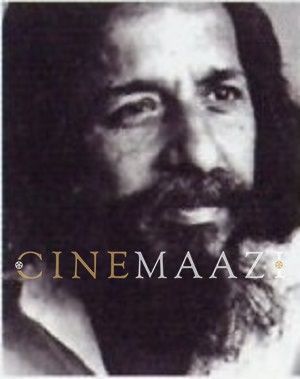John Abraham (Director)

Subscribe to read full article
This section is for paid subscribers only. Our subscription is only $37/- for one full year.
You get unlimited access to all paid section and features on the website with this subscription.
Not ready for a full subscription?
You can access this article for $2 , and have it saved to your account for one year.
- Born: 11 August, 1937 (Chennamkary, Kuttanadu)
- Died: 31 May, 1987 (Calicut)
- Primary Cinema: Malayalam
One of the most enigmatic figures in the history of Indian cinema, John Abraham introduced new idioms of realism in Malayalam cinema. Disenchanted with the commercial modes of production and distribution, he attempted to start what he termed as ‘people’s cinema’. An iconoclast and a nomad, Abraham’s films depicted struggles against orthodox tendencies of society and vouched for more open, egalitarian worlds.
Born on 11 August, 1937 in Chennamkary, Kuttanadu, in a traditional Christian family, he studied in CMS College Kottayam while staying with his grandfather. He earned a degree in history and politics from Marthoma College, Thiruvalia and went on to teach in a private college. Later he worked as an office assistant for LIC in Udupi. Interested in cinema, he joined the Film and Television Institute of Pune. He was inspired by Ritwik Ghatak during this time. He graduated as a gold medal-winning student of direction and screenwriting. He also assisted Mani Kaul during the making of Uski Roti (1969). He initially worked in a Hindi film that was shot in Kerala, Trisandhya (1972). Unfortunately, the film remained unreleased.
His made his directorial debut with Vidyarthikale Ithile Ithile (1972) which was produced in Madras as a co-operative effort. His next film Agraharathil Kazuthai (1977), a satire on orthodox Brahminical society, earned him great acclaim. It won the National Award for Best Feature Film in Tamil and has since cemented its place as a classic of Indian cinema. It is credited with bringing the New Wave to Tamil cinema. Due to its anti-Brahmin stance, the film was banned in Tamil Nadu and Doordarshan was forced to cancel a screening.
Cheriyachante Kroorakrithyangal (1979) was set against the backdrop of Kuttanadu and addressed the injustices of feudalism in Kerala. It won the Special Jury Award at the Kerala State Film Awards while its lead actor Adoor Bhasi won Best Actor.
Abraham led a mostly nomadic existence throughout this time. Tales of his eccentric behaviour and generous nature abound amongst people who knew him. There was a time when his friends caught him attempting to fly to Italy to attend a film festival, without wearing any shoes. His experiences led him to form the Odessa Collective in 1984. A radical attempt to innovate film production and exhibition, they collected funds by showing 16mm prints of Charlie Chaplin’s The Kid and Anand Patwardhan’s Hamara Shaher (1985) in towns and villages. These were used to film Amma Ariyan (1986) which told the story of some friends travelling to tell the mother of a young Naxalite the news of his death. The film was screened all across Kerala by the Collective. More than ten thousand screenings were organised. The film documented many important moments such as the ration rice protests in Fort Kochi and the strike by quarry workers in Irinjalakuda. His friend and colleague Odessa Sathyan kept the initiative alive even after Abraham’s death.
Abraham was also an accomplished writer of short stories. A collection of them was published under the name Nerchakkozhi. He also made three documentaries. He led a troubled life, suffering from alcoholism. On 30 May, 1987 he was admitted to Calicut Medical College after suffering a fall from the roof of a house during a party. He was allegedly not given proper care at the hospital which led to his untimely demise the next day.
His image as a romantic and idealist artist has turned him into a legend. His unconventional lifestyle and revolutionary film practice, his sensitive yet sharp portrayals of life, have been inspirations to generations of filmmakers who came after.
References
Image Courtesy: scroll.in
-
Filmography (4)
SortRole
-
Amma Ariyan 1986
-








.jpg)



